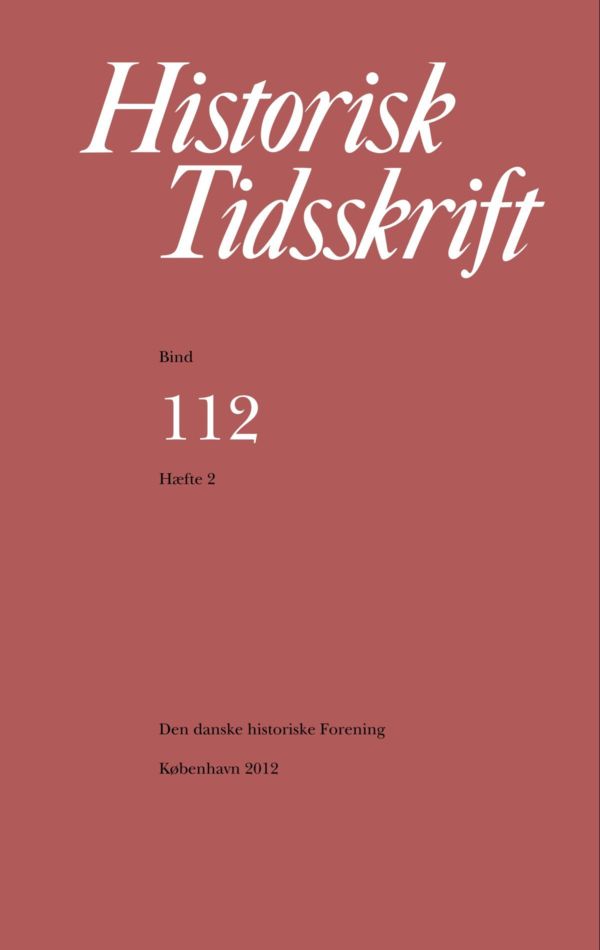Den amerikanske stemme i æteren. Statsradiofonien, the United States Information Service og Den kolde Krig, 1945-54
DOI:
https://doi.org/10.7146/ht.v112i2.56637Resumé
An American Voice on the Air The Danish State Broadcasting, The United States Information Service and the Cold War,1945-54The confrontation between antagonistic ideologies was an important part of the Cold War. Winning the hearts and minds of people in Europe required »soft power«, i.e. programmes that transcended the scope of traditional diplomacy by communicating directly to a mass audience in an appealing and convincing fashion. In recent Danish historiography, attempts by the Eastern Bloc to influence the shaping of public opinion have received a good deal of attention. However, the focus of the present article is on American efforts to the same effect. The Truman and Eisenhower administrations’ information campaigns in Denmark are analysed. As in all other Western European capitals, The United States Information Service operated an office in Copenhagen One particularly important field was radio broadcasting, a media with a tremendous impact in that period. Members of the US campaign staff, relying on the authority of the great power, first expected the management of Radio Denmark to act as a mouthpiece for official American views. They soon realized the clumsiness of this tactic. Political and executive chiefs of Radio Denmark were still feeling traumatized by the coercion that the German occupants had exercised 1940-45, and adhered strictly to principles of autonomy and rejection of unmitigated propaganda. Due to a surprising operational flexibility, considering the strictness of guidelines from Washington, procedures were now adjusted to fit the local environment. The USIS delivered source material and offered assistance while leaving editing and angle of approach to Danish journalists and commentators. The turnaround was largely successful. Occasionally, themes as race relations and mass culture in the US received a critical treatment. However, regarding core issues such as the nature and intentions of the Soviet regime and the faith of European citizens in NATO, the Copenhagen branch of USIS could rightfully claim an important role in the reversal of neutralist attitudes. Increasingly, politicians, academics and journalists became agents of self-Americanisation, motivated by genuine conviction. This tendency was assisted by for instance travel grants and scholarships channelled through the local US representation. In addition, the responsiveness of average citizens to American cultural influence and general mind-set gained more strength, and positively so. It was a setback though, when McCarthyism came to set the agenda. Its negative influence in Denmark was direct insofar as the USIS was obliged to remove progressive and controversial cultural products from their display of American culture.Downloads
Publiceret
Citation/Eksport
Nummer
Sektion
Licens
Ophavsret til bidrag i Historisk Tidsskrift tilhører forfatterne og Den danske historiske Forening som udgiver af Historisk Tidsskrift. For illustrationer gælder den ophavsret, som står anført i billedteksten. Ophavsretslovens almindelige bestemmelser gælder, hvilket vil sige, at ophavsretten gælder i 70 år efter forfatterens død. Bidrag i Historisk Tidsskrift må derfor, med forbehold for en ”moving wall” på tre år, frit downloades, læses, gemmes, anvendes og citeres (med kildeangivelse) i privat og videnskabelig sammenhæng, men de må ikke helt eller delvis genudgives af tredjepart, heller ikke i redigeret form, uden tilladelse fra forfatterne og Den danske historiske Forening. Henvendelse skal i så fald rettes til Historisk Tidsskrifts redaktion på histtid@hum.ku.dk.





